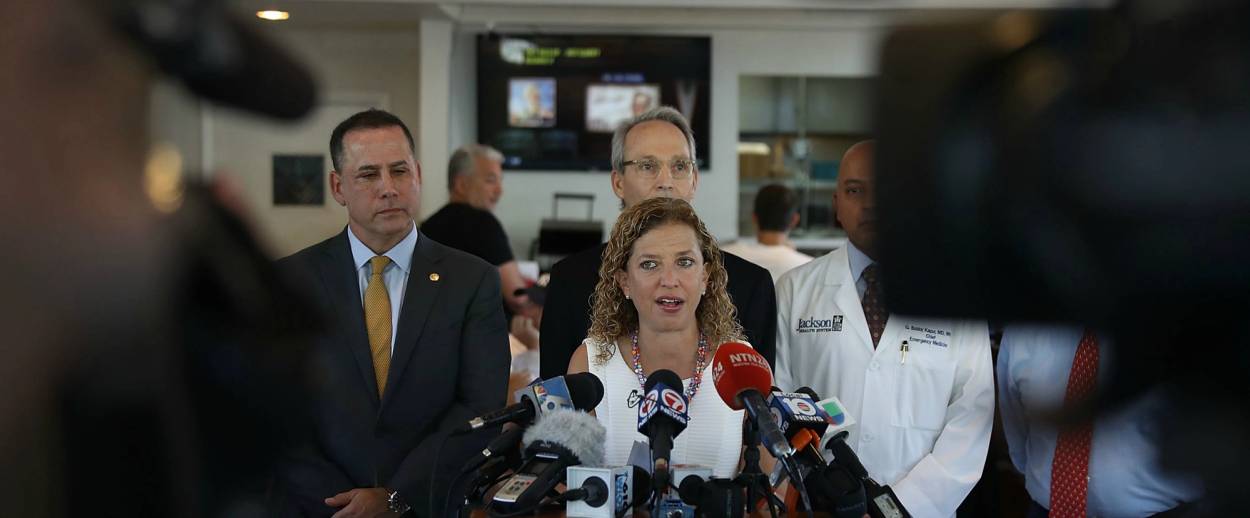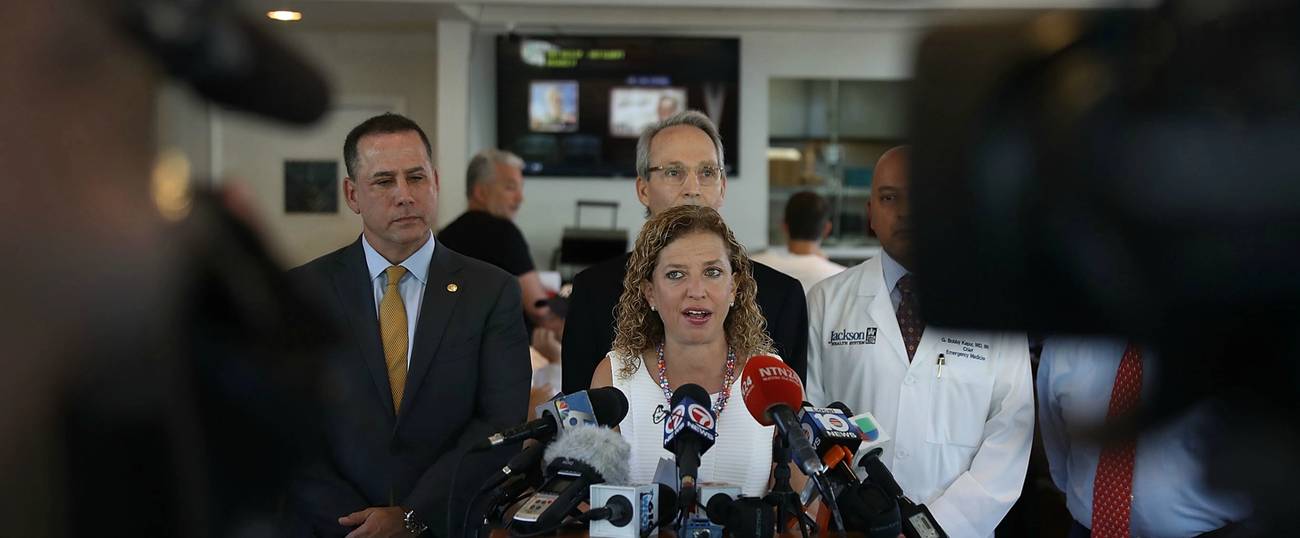Despite a Rough Year, Debbie Wasserman Schultz Wins Florida Congressional Primary
Wasserman Schultz, who resigned as DNC chair in July, beat her Bernie Sanders-backed rival in Tuesday’s primary elections in Florida




Has anyone in American politics had a more frustrating past couple years than Debbie Wasserman-Schultz? Obviously Jeb Bush hasn’t fared so well, and in some alternate universe, Marco Rubio is within plausible striking distance of the White House.
But spare a thought for the Florida congresswoman and former head of the Democratic National Committee. Since mid-2014, she’s annoyed the right wing of her constituency in supporting the Iran nuclear deal, had a protracted falling out with Barack Obama, faced a plot to oust her as DNC chair, enraged left-wingers across the country for allegedly stacking the Democratic presidential primary process against Bernie Sanders, and was forced to resign as DNC head after Russian hackers’ published internal party emails the week before the Democratic convention, at which she was subsequently booed offstage.
And, in an almost comical symbol of her year of troubles, she picked up a primary challenger who is somehow both a Bernie Sanders loyalist and an opponent of the Iran agreement. Yesterday’s primary in Florida’s 23rd congressional district was a chance to measure just how much the acrimony has affected the standing of one of the country’s most prominent Jewish political figures. The answer is: less than one might think. Schultz beat challenger Tim Canova by 13 points, picking up over 56 percent of the vote. Florida voters were forgiving of her alleged missteps, which seem less severe in retrospect.
By July 25, 90 percent of Bernie Sanders supporters said they planned on voting for Hillary Clinton, who commands a comfortable 5.3 percent advantage over Republican opponent Donald Trump in Real Clear Politics’ average of polls. Whatever wounds Wasserman Schultz’s management of the presidential primary process might have inflicted on the party have healed for the time being, and the Democrats are both relatively united and likely headed to a favorable result in November. In a year in which the Republican party has all but imploded and the Democrats faced their own unexpectedly strong populist surge, Wasserman Schultz’s leadership of the DNC begins to look like an impressive if totally thankless accomplishment.
Wasserman-Schultz’s primary wasn’t the only one from yesterday that suggested a certain equilibrium may be returning to American politics. Marco Rubio handily won his Senate primary in Florida, as did John McCain in Arizona, an icon of establishment Republican moderation. The Trump and Sanders insurgencies may return in some other form. But this week, there are at least signs that the country’s anti-establishment rage isn’t quite the blazing-hot, destructive force that it once seemed to be.
Wasserman Schultz’s win also revealed the limits of the Iran deal as an electoral wedge. Wasserman Schultz was notably conflicted over the agreement, and gave an emotional yet equivocal defense of the deal during a Sept. 6, 2015 appearance on CNN . Although she was up against a deal opponent in her primary, a contrast on the issue wasn’t enough to end her political career—even despite her troubles from the primary season, and her representation of the 12th most-Jewish congressional district in America.
Armin Rosen is a staff writer for Tablet Magazine.